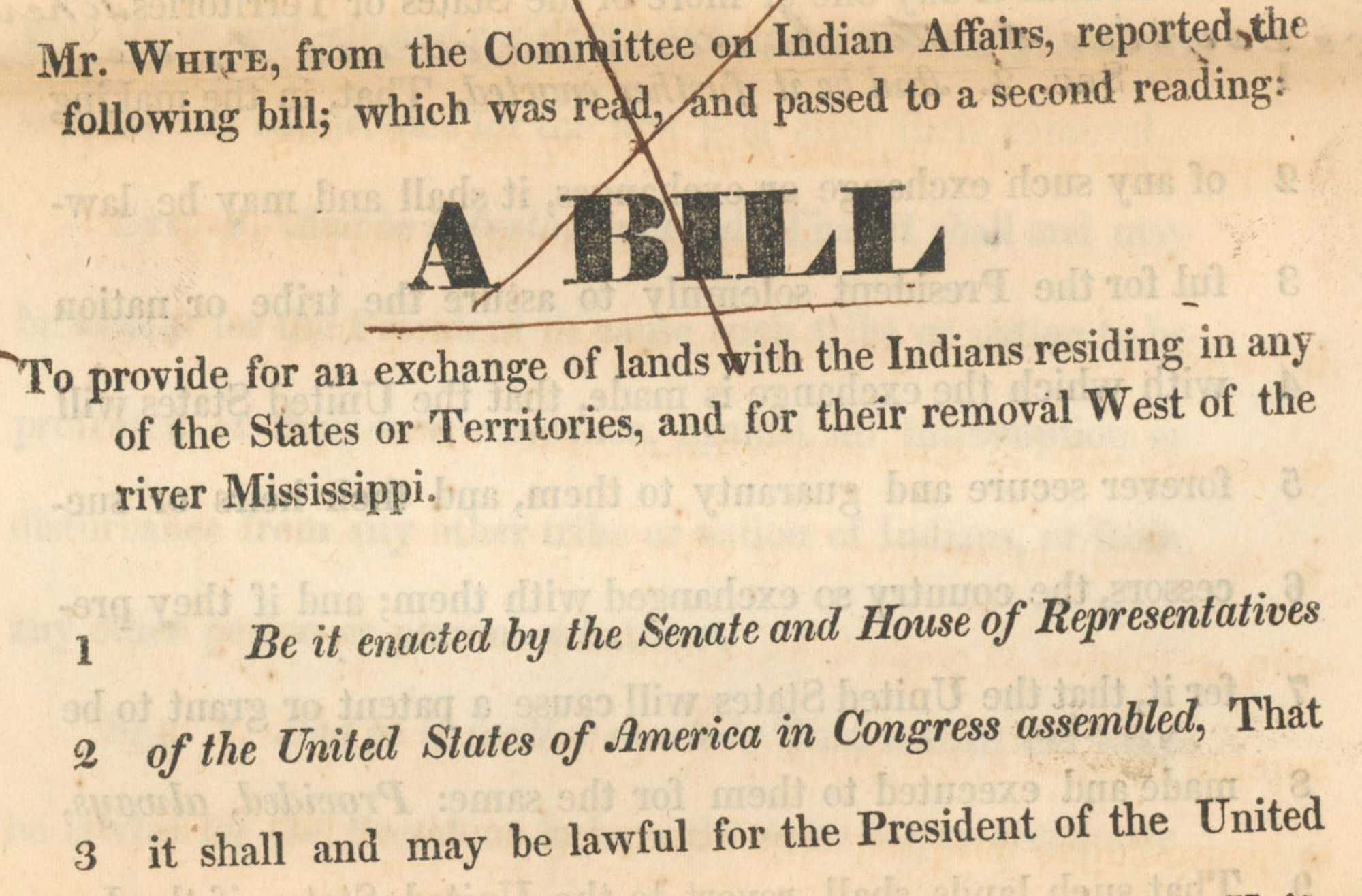188th Anniversary of the Indian Removal Act

Yesterday, May 28th, is a significant date in history of the United States with regards to Native Americans. On May 28th, 1830 President Andrew Jackson signed the Indian Removal Act into law which set in motion the infamous Trail of Tears.
From nativenewsonline.net:
“The Indian Removal Act set in motion the Trail of Tears, which attributed to the genocide of thousands of American Indians and the death of one-quarter Cherokee people. For this reason, Jackson is referred to by American Indians as the “Indian-killer” president and does not feel he should be honored or celebrated in any fashion.”
The quote requires a bit of clarification: Andrew Jackson was not remorseful about these actions, it is the American Indians that feel he should not be honored or celebrated.
If you’re interested in reading more about the Indian Removal Act, check out the Wikipedia page, or the Library of Congress digital collection where you can read a scanned copy of the original legislation.
An interesting thing about North Carolina in regards to ‘honors’ for Andrew Jackson is that U.S. Route 74 (a highway that runs east-west from Chattanooga, Tennessee to Wrightsville Beach, North Carolina) is officially known as the Andrew Jackson Highway (since April 4, 1963), except the portion of the highway that passes through Robeson County which is home of the Lumbee Tribe. The stretch through Lumbee territory is now known as the American Indian Highway (since November 8, 2001) after roughly six years of attempts to change it. There is a note about the controversy of the name on Wikipedia.
Thanks for reading!